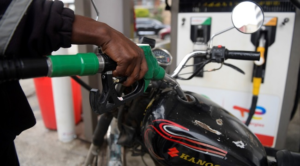
Vladimir Putin’s crimes against humanity continue to shock our collective conscience. Beyond Russia’s war of aggression against a sovereign state – unprecedented in Europe since the Second World War – we’ve witnessed the mass murder of civilians, including in Bucha, the deliberate bombing of hospitals and maternity wards, systemic sexual violence and torture, and the forced deportation of civilians. As these crimes continue, the international community must do more to protect Ukraine’s most vulnerable citizens: its children.
Recent reports have confirmed that Russia has transferred more than 19,000 Ukrainian children – and possibly significantly more – in a campaign of “Russification” aimed at their forced assimilation and permanent separation from their nation. Many of the victims have been transferred to centres in the occupied territories and then deported to child care institutions in the Russian Federation, followed by adoption into families. Others are children who were abducted while on holiday, through the use of a network of 43 re-education camps.
These ongoing crimes – reminiscent of the mass kidnapping of Polish children by the Nazis – require decisive international action.
The large-scale deportation of children constitutes a war crime and crimes against humanity. In March of this year, the International Criminal Court issued arrest warrants for Mr. Putin and Russian children’s rights commissioner Maria Lvova-Belova, holding them personally responsible for forced deportation and transfer of Ukrainian children. In September, the Canadian government took significant action by imposing Magnitsky sanctions on 42 individuals and 21 entities implicated in the transfer and custody of Ukrainian children in Russia. The U.S. followed suit and sanctioned 11 Russians and two re-education facilities involved in the forced transfer of thousands of children.
Building on these initiatives, Canada can play an important leadership role in protecting Ukrainian children by pursuing individual accountability for the perpetrators, compensation for the victims and survivors, and increasing pressure on Russia to release and return the abducted children.
In addition to implementing further targeted sanctions and expanding asset seizures, Canada could lead the establishment of an international compensation mechanism that would repurpose Russian assets to fund justice mechanisms for Ukrainian people and victims.
for future generations.
Ensuring the safe return of all Ukrainian children to their rightful homes is not just a matter of international law; it is our collective responsibility, rooted in our shared humanity. This focus should become an essential part of the overall response of Canada and Ukraine’s other allies to Russia’s criminal war in Ukraine.
Canada could also consider how best to address a major gap in currently available international justice mechanisms. Although Ukraine has accepted the jurisdiction of the International Criminal Court to prosecute individuals for genocide, crimes against humanity, and war crimes committed on its territory, the court cannot exercise jurisdiction over the crime of aggression without Russia’s consent. The decision to wage an unprovoked war of aggression contrary to the UN Charter is, in the words of the 1946 Nuremberg judgement for Nazi leaders, “the supreme international crime differing only from other war crimes in that it contains within itself the accumulated evil of the whole.” That is why there have been calls for the establishment of a tribunal that would prosecute Russia for the crime of aggression in order to ensure that leaders responsible for this catastrophic decision resulting in so many atrocities are brought to justice.
Finally, Canada could appoint a special envoy for international justice, who could serve as a focal point within Canada for our efforts to support the retrieval of these children. A special envoy could also co-ordinate our efforts to support the creation of these international justice mechanisms.
Canada’s diplomatic influence and moral stature in the world community could go far in protecting innocent Ukrainian lives. Exploring what more could be done is imperative, not least because Canada is home to the one of the biggest Ukrainian diasporas, second only to Russia. Some 1.5 million Canadians – approximately 4 per cent of the population – trace their origins to Ukraine. It is befitting that our two nations join forces in pursuit of this worthy cause, both for these suffering children and to build a better world for future generations.
Ensuring the safe return of all Ukrainian children to their rightful homes is not just a matter of international law; it is our collective responsibility, rooted in our shared humanity. This focus should become an essential part of the overall response of Canada and Ukraine’s other allies to Russia’s criminal war in Ukraine.
The ongoing systematic and large-scale transfer of Ukrainian children to Russia and Russian-occupied territories is one of the darkest chapters in recent history. But despair is not the solution. We must unite for justice and do our utmost for the liberation and healing of these children.







